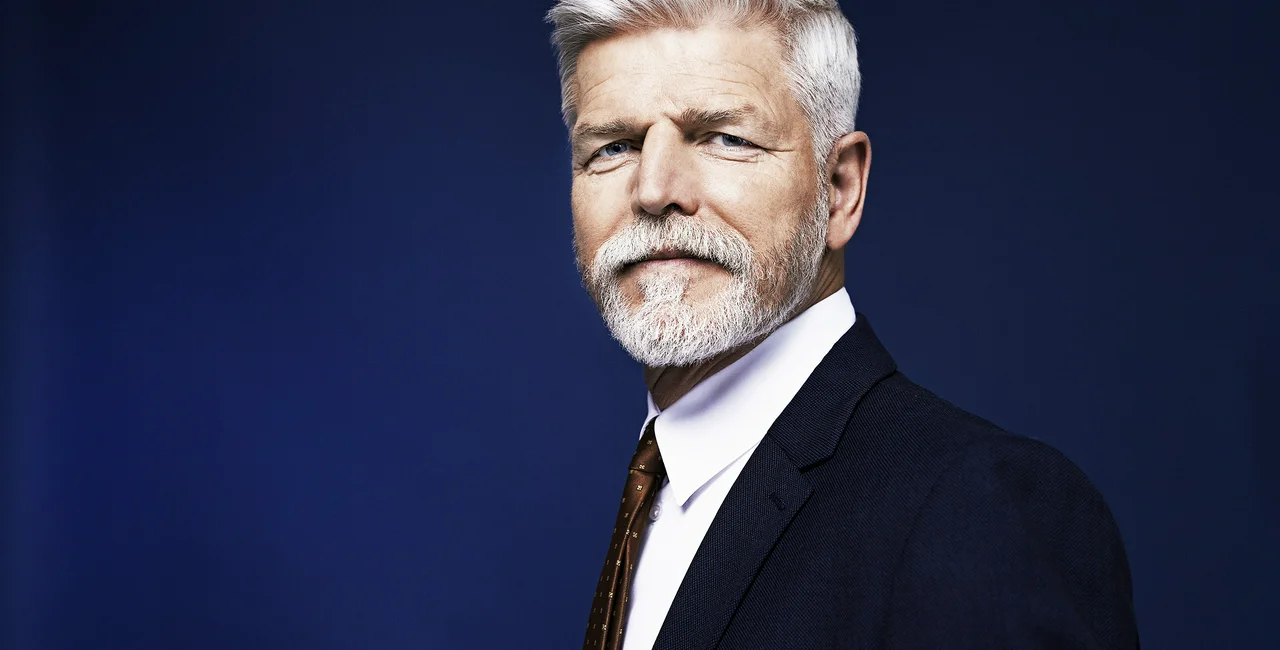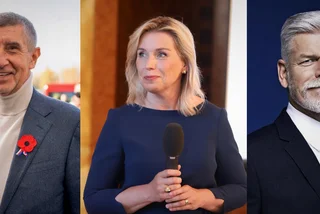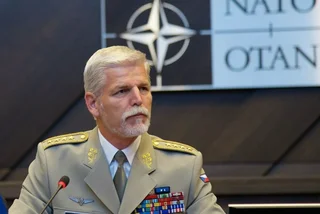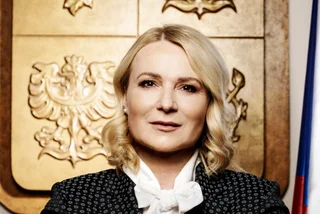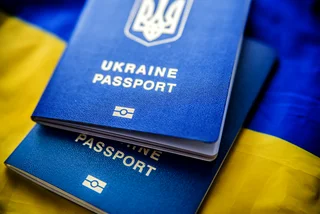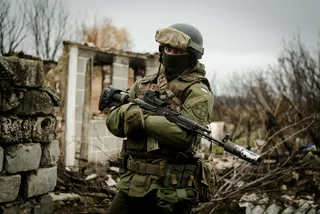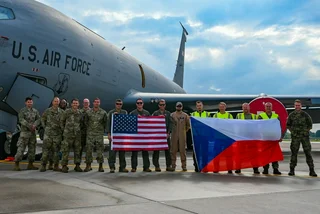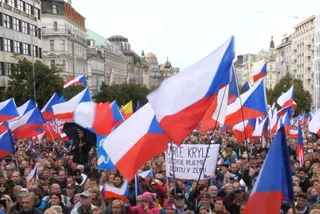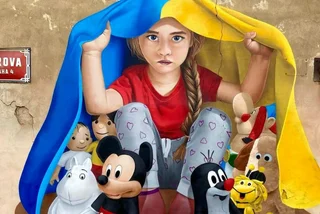The race to become the next Czech president is heating up. At the end of November, a final list of candidates was confirmed for the elections in January to decide the country’s next head of state.
One of the favorites is retired Czech Army Chief of Staff Petr Pavel, who served as the Chair of the NATO Military Committee from 2015 to 2018. Pavel’s campaign focuses on a promise to “restore order and peace to Czechia.”
Pavel is an outspoken critic of populist politics, supporting a pro-Western, pro-EU stance for Czechia, and opposing the threat from Russia. But he’s not without personal controversy, having been a member of the Communist Party of Czechoslovakia in the years prior to the Velvet Revolution.
General Pavel spoke to me about his vision for Czechia, his perception of the country’s divided society, and his ambition to restore faith in politics.
This interview was edited for clarity and length.
The Russia-Ukraine war has opened up questions about the allegiances of countries in Eastern Europe. Do you believe the Czech Republic belongs to the West or East?
The first option is correct. We are firmly part of the family of democratic countries. Not necessarily “the West” – we should probably call it “the political West,” including all democracies on the other side of the globe as well. And this doesn’t include notions of being a “bridge” between East and West, or outdated notions of pan-Slavism. The only place that I see for the Czech Republic is with the Western democracies.
Does the country’s past as part of the Eastern Bloc complicate this picture?
We seem to be a victim of long-term distorted education in terms of our own roots. Traditionally, our cultural links are much closer with the West than with the East. And although we’re considered to be a Slavic nation, genetic studies have shown that we are hardly 50% Slavic. The other half is of German, Frankish, or Celtic origin. We are the contact point between those two worlds.
But culturally, economically, and socially, we’re closer to the West; we were part of the “East” for only 40 years, but the rest of our history is much more closely linked to the West. That’s why I see all these ideas about being a bridge to the East as not being based on facts. I see the position of the Czech Republic as part of the world to which it traditionally belonged.
This includes potentially some understanding for the East; but on the other hand, we’re no better at understanding Russians than the Brits or Americans are. We are all victims of the same confusion, because by looking at global problems through our optics, we are quite often misled in our conclusions when it comes to Russia. Their way of thinking is very different.
In what way?
First, Russia doesn’t see itself as a nation, but as a civilization. It views itself – understandably so, as it’s a huge country – as one of the main pillars of the global order. Russia believes that regardless of its real economic weight, it is a superpower that deserves to be consulted on all global issues. Russians feel offended when they are disregarded.
Do you think that if Russia is allowed to dominate Ukraine, it will turn its aggression to other countries?
I believe President Vladimir Putin would feel encouraged by taking control of Ukraine. Also, he would see it as a confirmation of his mission to restore a Russian sphere of influence and exert some kind of control on the area of the former Soviet Union.
The next target would probably be Moldova, which is almost defenseless, and then most likely Georgia. Only then, if Russia succeeds and is not confronted, it might also make some efforts against other countries.
I’m not sure that Russia would go so far as to attempt taking back the Baltics, because it understands the NATO treaty. And there is a determination in the West to stop Russia from taking on NATO; if not from all countries then at least from the U.S., because that would mean the U.S. losing face, which it cannot afford.
How would you evaluate the Czech government’s response to the Ukraine war so far?
In this sense, I’m grateful for the results of the last [2021] parliamentary elections and for the coalition government that we have today. I was extremely proud that Czechia was among the first countries to offer and provide real support to Ukraine, in terms of military equipment, money, and humanitarian support.
There was a huge wave of support from the general public; there was an announcement about the opening of a fundraising account at the Ukrainian embassy, and within a couple of days we collected around CZK 1 billion.
On the other hand, if you look at the populist scene here, some leaders openly declare their willingness to go to Russia and negotiate a 50% reduction in prices for gas and oil, which is obviously nonsense.
Do you disagree with the argument, used by Hungarian Prime Minister Viktor Orbán and others, that this region should strive for more balance between East and West?
That’s one message that Czech populists are using: that we should pursue the same path. But these ideas are very dangerous because if we start melting down the unity that Europe has sustained until now, the Russians will take advantage of it very quickly.
They could provide lower prices to some selected countries to put a wedge in the EU and NATO, but in the long term, we would only lose through such measures. What we could get on the one hand, we would immediately lose on the other. It’s not just about the cost of energy today, but about the cost of living in the future as well.
What would a Ukrainian victory look like?
If you’re in Orbán’s shoes, you believe that victory would be to stop now, give the Russians what they have occupied so far, and make a deal. But I believe that at this point, it’s entirely up to the Ukrainians to say where they see victory.
It’s extremely difficult to tell them to stop at the borders of Feb. 24, for example, because it’s their territory. We maintain the argument that we support not only Ukrainian sovereignty but also territorial integrity, with their internationally recognized borders. So how could we push them into accepting a different story?
With Ukraine encouraged by its successes, and as we hear Ukrainian President Zelensky claiming that Ukraine will liberate all its territory including Crimea, we shouldn’t tell them that this isn’t the right approach. If they are able to do that, we should support them. It’s up to Ukraine to decide when to come to the table, and we shouldn’t push them.
Returning to the Czech political environment, do you think the Ukraine war will lead to a significant increase in defense spending in Czechia?
I’m not sure that this government will be able to go beyond the 2 percent of GDP target set by NATO, because it will have to deal with a number of burning issues, and resources are not unlimited. We are in a different situation to Poland, for example, because Poles were always extremely clear when it comes to relations with Russia.
Poland is also a traditional land-force country, meaning if there is any land operation it would most likely come through Poland. The country knows this, and so it is building up their its land resource capability with heavy equipment.
Here, it’s different, and I believe it would be a success if the government is able to meet the 2-percent target. In this country, there will always be quite a strong group of people who believe Russia is not our primary threat. That’s why there are calls for us to reduce our military spending and spend it on something else.
Prague has seen huge protests against support for Ukraine, linked to euroskeptic views and suspicion of the West. What do you make of these protests?
There are several trends that are causing concern. One is euroskepticism, mostly from conservative parties. Another is populism, and then there is extremism, quite often combined with pro-Russian sentiments.
When you look at the protests on Wenceslas Square, it was a combination of people who tend to vote for populist or extremist parties, with people who are naturally worried about the situation and do not receive proper answers from the government. It’s a mix of rising populism and extremism with a lack of capability on the government’s side to satisfy those who are worried.
Do you think a lack of trust in mainstream media narratives is also responsible?
Even some prominent politicians are encouraging people not to believe in the media. Just look at Andrej Babiš [the former prime minister of Czechia], who owns media and put out an advert encouraging people to disbelieve them. It’s ironic, but that’s the way it is.
But often people don’t have a real argument, they only have their dogma saying “public media all lie.” These people see state-owned media as fake, state-owned propaganda; the only media they trust are those that the national media determine to be fake news sources. It’s so difficult to convince people the other way around.
When you say: let’s stick to verifiable arguments, let’s examine which news titles report objective facts, people don’t get it. They are in such a mood that anything coming from official authorities, from politicians, from the parties, is all propaganda. They get news that is different, and they believe that by being different, it must be right.
Do you hear such suspicions while talking to people around the country?
Of course, I hear these sentiments, but I try to separate those who are simply afraid from those who are extremists.
People are blaming the government for not listening to them, and for not telling them how to deal with the serious situation.
It has all been supported by the opposition, especially those who politicians who are irresponsible, who say: “this government doesn’t care about you, this government has done nothing for you.” It’s not true, but when people get no information stream from the government, they tend to believe it.
That’s why out of frustration they came and protested, but it was presented as though the tens of thousands of people in Wenceslas Square all shared the same views. I think that’s not true.












 Reading time: 8 minutes
Reading time: 8 minutes 